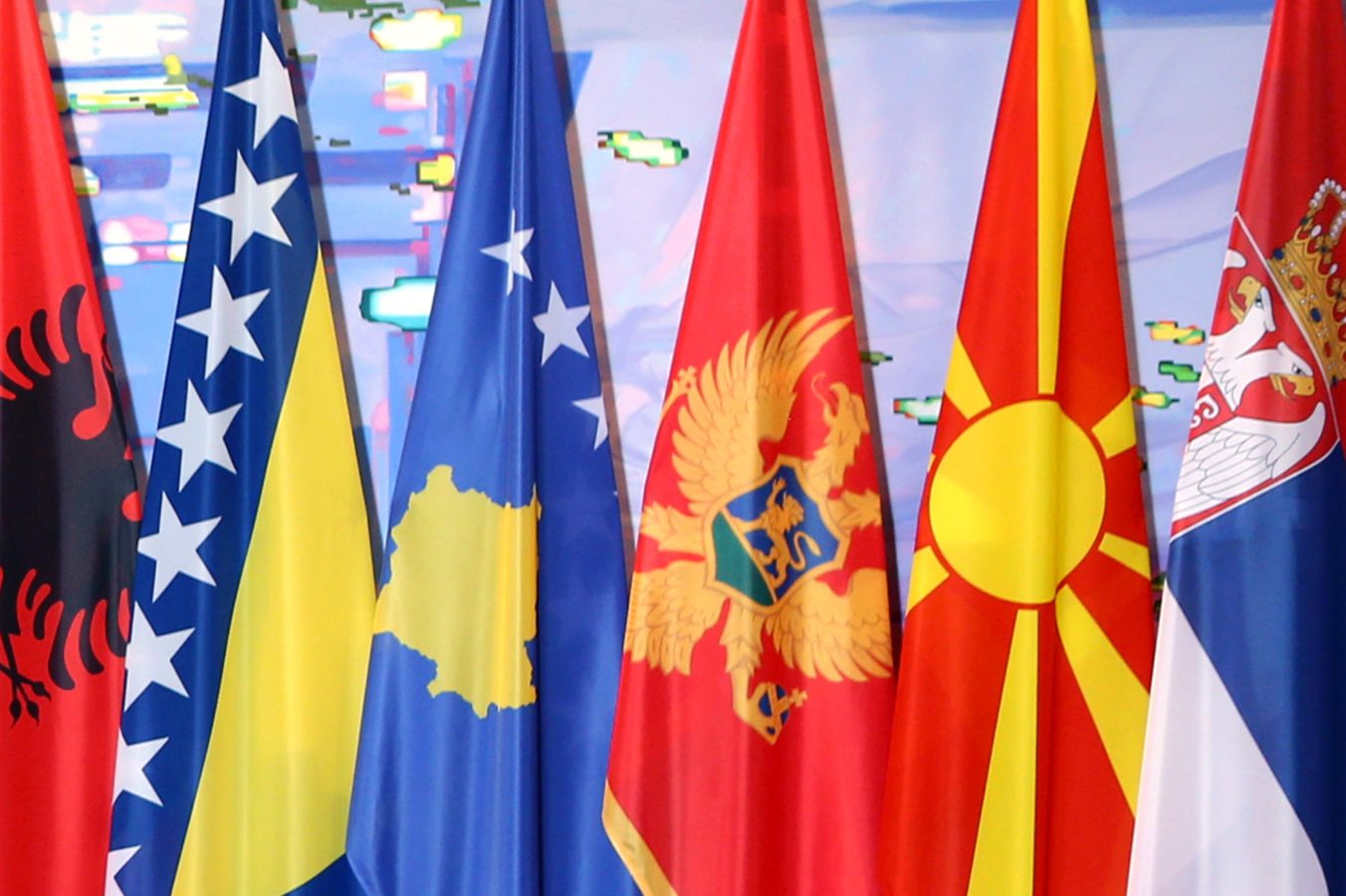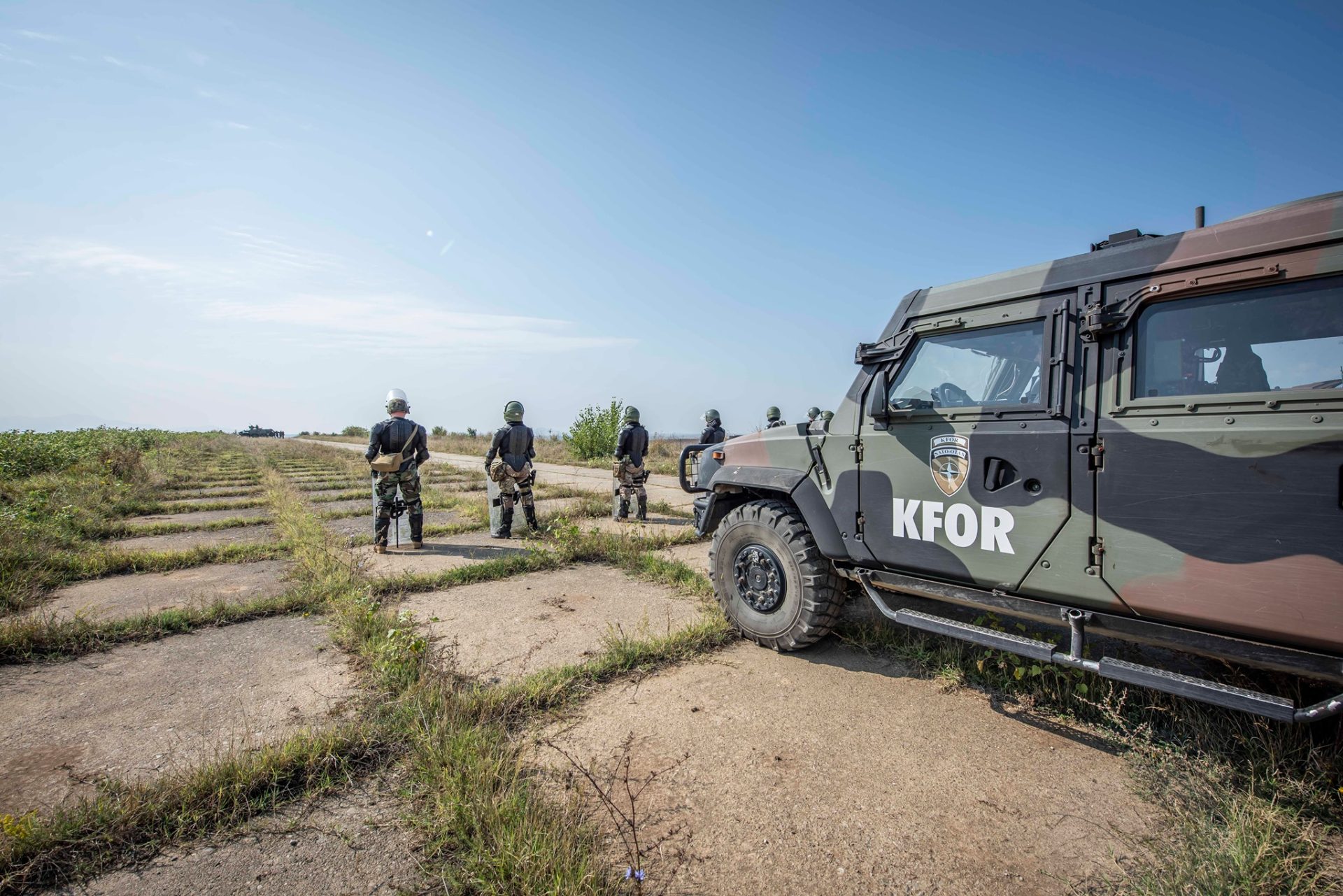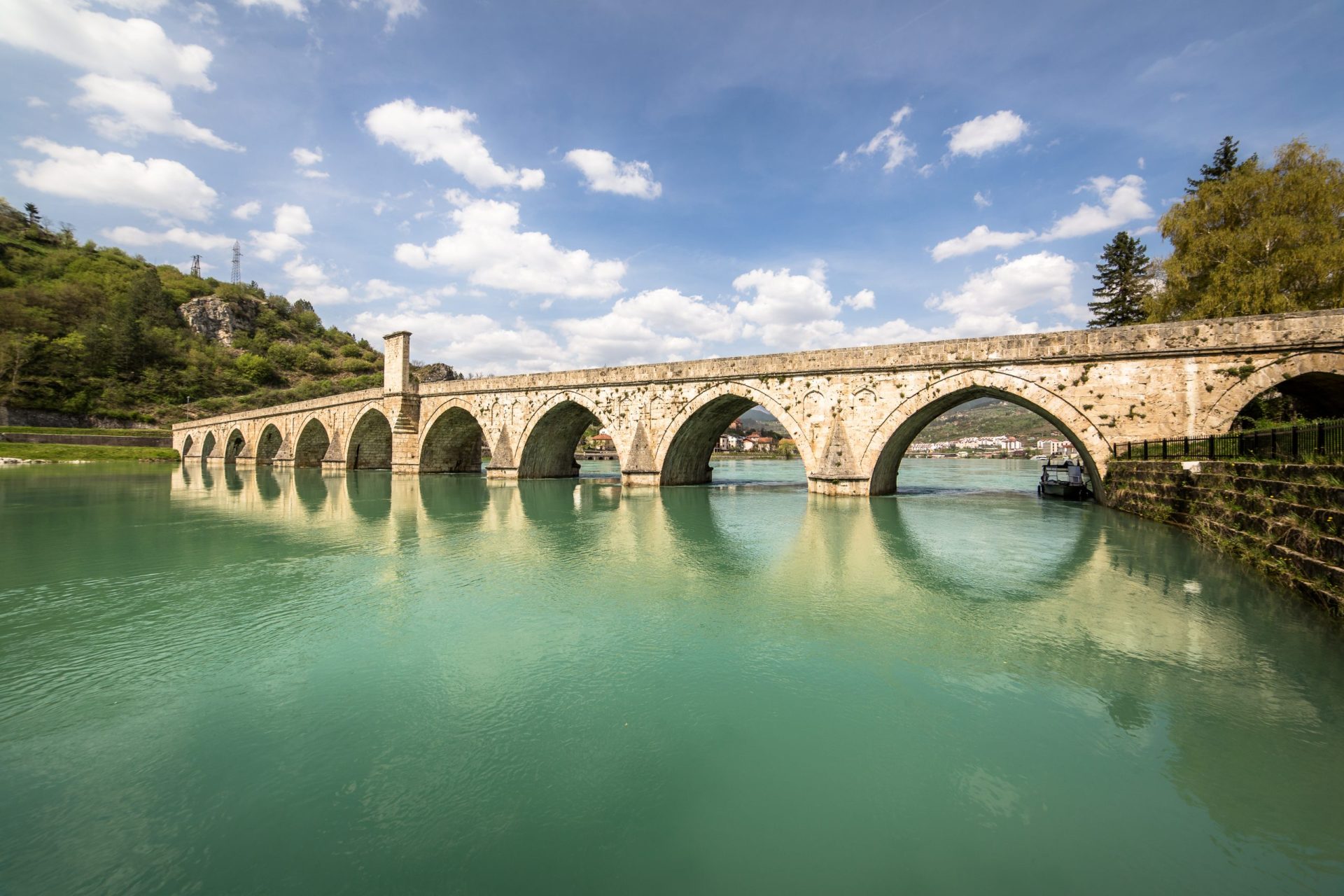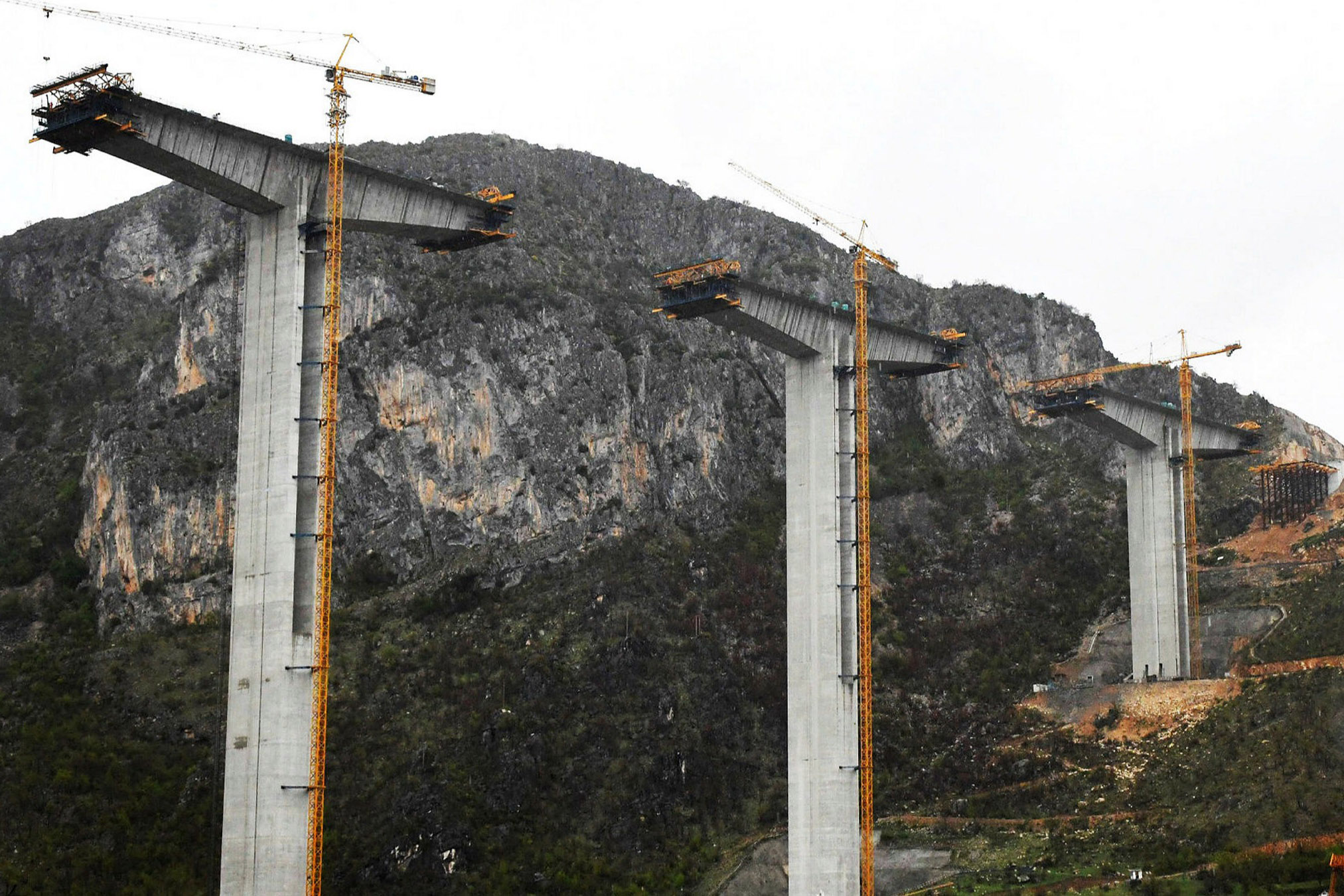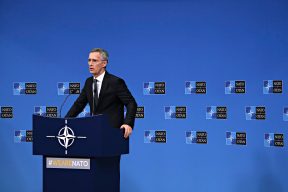Twenty years of NATO and the Western Balkans
Silvia Maretti
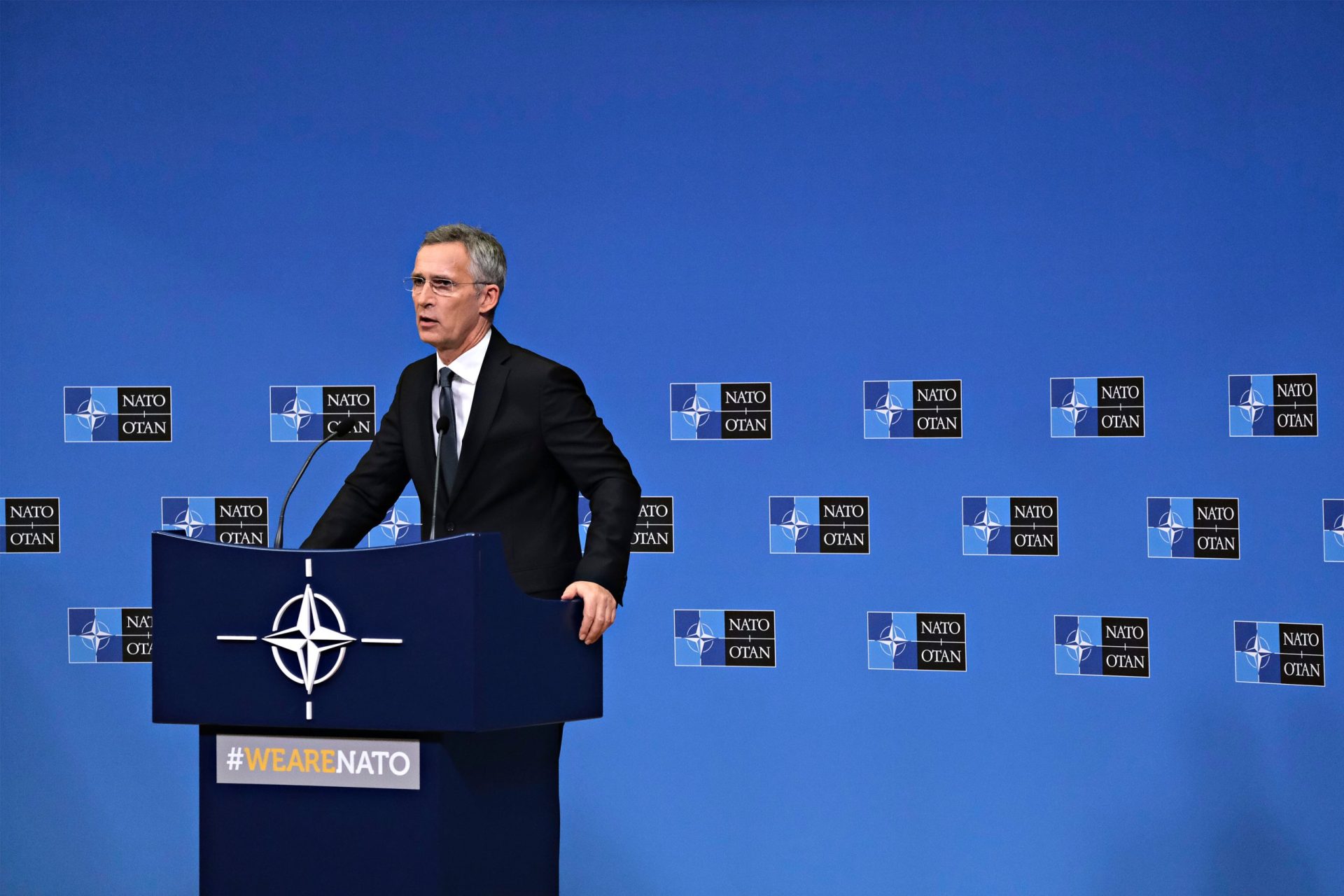
Quote by the NATO Secretary General Jens Stoltenberg, during his speech given in front of the United States Congress on 4 April 2019, in the occasion of the 70th Anniversary of the signature of the North Atlantic Treaty: “Time and again, Europe and North America have served together under the same flag. For the same cause of freedom and democracy. Deterring the Soviet Union. Bringing stability to the Western Balkans. Fighting terrorism in Iraq and in Afghanistan. Changing as the world around us changes. As we look together towards a more unpredictable world, we continue to stand shoulder to shoulder”.
At the NATO Summit hosted in Brussels on 14 June 2021, Allied Heads of State and Government agreed to a very ambitious agenda charting the Alliance’s course and transformation over the next decade and beyond. In particular, with the approval of the NATO 2030 agenda, Allies aimed at ensuring that NATO will be able to face the multiple, unpredictable challenges of today and tomorrow. Against the backdrop of a future Alliance, that, in the words of NATO’s Secretary General Jens Stoltenberg, should be prepared to be militarily stronger, more political and more global, the Allies agreed a very ambitious package.
This includes strengthening political consultations, reinforcing collective defence, enhancing resilience, sharpening NATO’s technological edge, upholding the rules-based international order, step up training and capacity building for partners, and addressing the security impact of climate change. They further agreed to develop NATO’s next Strategic Concept for the Summit in 2022.
As the world changes, it is an imperative requirement for NATO to continue to evolve. The present security environment is more complex than ever before, and even more complex is likely to be any future scenario ahead of us. With global competition, sophisticated cyber-attacks, disruptive technologies, brutal terrorism, proliferation of nuclear weapons and the security impacts of climate change. No country, no continent, can face these challenges alone. Yet, the transatlantic link, outlined first and foremost in the 72 years-old Washington Treaty, provides a unique bond between European Allies and North Americans, making NATO the organization of choice to best tackle these multi-faceted and interlinked security challenges, both today and tomorrow. NATO is not only a unique forum of continuous political consultations and practical cooperation between Europe and North America, it is the longest lasting political-military Alliance set up in times of peace in modern and contemporary history, having outlived the XIX century-established Holy Alliance.
Under the banner of NATO 2030, the Alliance is committed to a very ambitious agenda, encompassing eight main areas. It is worthwhile considering them, as they all bear a direct link with the current and future relationship between NATO and the Western Balkans, whereas addressing allies in the region, or partner nations. The future outlook of NATO therefore, as stated by the Secretary General for NATO 2030 is one that should combine the military dimension with an enhanced political role for the Alliance. The Western Balkans need NATO to continue to remain politically committed to the region. How does this fit into NATO’s continuous engagement in the Western Balkans, and most importantly, how does the future NATO agenda links to the achievements that have been reached so far in enhancing the security and stability of the Western Balkans, primarily – but not only – through the Open Door Policy? As we approach the revision of the Strategic Concept, did the current one facilitate an enhancement of regional integration into NATO? No future vision of NATO can fail to include the Western Balkans.
The region in fact consists of the oldest and longest-lasting political and operational investment of the Alliance, and certainly the most challenging and articulate one, given the regional complexity and its political, ethnic and religious fragmentation. The Western Balkans include in fact: NATO members, NATO partners, one neutral country –Serbia – and finally it is the region where NATO is still carrying out its sole military operation through KFOR in Kosovo.
NATO has been in the Western Balkans since the 1990s, and the Western Balkans have been in NATO for many years now, through operations, partnership, and membership in the Alliance, acquired by many countries of the region. Throughout the last 20 years, the Western Balkans countries, both Allies and partners, have been contributing to the three main pillars of the NATO Strategic Concept, namely: Deterrence and Defense, Crisis Management and Cooperative Security. The Western Balkans countries’ contribution to these three pillars is worthwhile a deeper analysis, as it is closely linked to the Open Door Policy and the path to NATO membership. The obvious start is crisis management. NATO has been present in the Western Balkans since the 1990s, and the region has marked the first interventions of the Alliance in the so called “out of area”, that is to say, operations other than those mandated by Article 5 of the North Atlantic Treaty, the Collective Defense clause. Allied military interventions in this region have marked a new path for the Alliance in the immediate aftermath of the Cold War, when NATO was confronted with the choice to go “out of area” or “out of business”. It was not though, the concern to go out of business to prompt the first peace enforcement operations in the Western Balkans. Rather, a growing understanding that NATO was the only international organization that, with its integrated military command structure and decades of joint Allied exercises, would have been the organizations of choice able to carry out crisis management and peacekeeping operations beyond its borders. NATO has deployed stabilization forces in Bosnia and Herzegovina (IFOR and then SFOR), after the Dayton peace agreements, and is still present with a military force in Kosovo through KFOR, under the provisions of UNSCR1244 of 1999, that is, to date, around 3,500 personnel strong. NATO’s presence in Kosovo remains essential to the security and stability of Kosovo and the region as a whole. NATO today contributes, after 22 years of continuous presence, to the security and stability of Kosovo along three lines of effort. First, by maintaining a safe and secure environment and freedom of movement in accordance with UNSCR 1244 for all the communities in Kosovo. Secondly, by providing assistance in the area of capacity building through the mixed civil/military team composing the NATO Advisory and Liaison Team (NALT) in support of the development of the Kosovo Security Force (KSF). This commitment has been recently revised as a consequence of Kosovo’s decision to transform the nature of the KSF into a full fledge army, therefore changing the forces’ mandate. Last but not least, it is worth mentioning the Enhanced Interaction between NATO and Kosovo. This is a basket of tailored activities agreed between NATO and Kosovo that identifies specific areas where cooperation with Kosovo could be enhanced, such as public diplomacy activities, just to mention one. This cooperation has been revised as well in the wake of the above-mentioned decision taken by Kosovo. In full respect of the decision of four Allies not to recognize the Unilateral Declaration of Independence of Kosovo, the Alliance acknowledges the key role of the European Union in promoting a rapprochement between Serbia and Kosovo. NATO fully supports the EU-sponsored Intensified Dialogue on the Normalization of Relations between Belgrade and Pristina, as well as any other initiative aimed at improving the situation between these two. Important the recent development concerning the result obtained with the EU-brokered agreement between Belgrade and Pristina on the normalization of their economic relations reached in Washington in early September 2020 under the auspices of former US President Trump. 2019 marked the 20th Anniversary of the launching of the NATO-led Kosovo Force – KFOR – operation. Since then, NATO’s operation, based on the provisions of UNSCR 1244 has evolved, and the situation on the ground has improved so significantly, that from a 50.000 strong force in 1999, we are now down to less than 4.000 personnel operating in KFOR. As the NATO Secretary General reiterated in a number of occasions, NATO’s presence through KFOR will remain as long as it will be necessary. NATO’s deployment is conditions-based, and not calendar driven. Considering the region more broadly, it became clear very early on after the peacekeeping and peace enforcement operations of the 1990s that the post-intervention stabilization phase could not be carried out only by boots on the ground. The best and most efficient tool of stabilization has been – and still is – political dialogue and practical cooperation through partnership and partnership tools. Partnership leads to the next pillar of the Strategic Concept: Cooperative Security. Since the early 2000, the countries of the Western Balkans have decided to join NATO’s Partnership for Peace Program, some with a view to become members, some others with the aim to contribute to regional stability whilst preserving their constitutional neutrality. The modalities and the ultimate aim driving the countries of the Western Balkans to become partners of NATO has varied and still varies, and this is absolutely undisputable: Montenegro four years ago in June, and North Macedonia joined as a full member just one year ago, in March 2020, setting its aspirations fully fulfilled. Conversely, Serbia has willingly joined the Partnerships for Peace program, but made it clear from the outset that it is its decision to maintain its neutrality and therefore it does not have membership aspirations, and this is fully respected by NATO. Bosnia and Herzegovina instead, despite the internal divisions, is fully committed to continuing the reform process. It will then be a sovereign decision whether to aspire to membership, once the reform process will be complete. These examples of cooperation in the partnership framework are very different, as different may be individual country aspirations; nevertheless, there is a common feature to all of them, and that is the contribution that each country of the region is providing to “projecting stability” to their own respective country as well as for the Western Balkans region.
Ensuring the security of the Euro-Atlantic area in fact, is not only about deterrence and defence at home, it is also about fostering dialogue and cooperation beyond NATO borders, especially in area that, due to their proximity to the Alliance, may affect NATO security, like the Western Balkans. When NATO neighbours are more stable, the Alliance itself is more stable. Stability is nourished and preserved through constant dialogue, cooperation, inter-operability, participation to joint exercises, civil preparedness, sharing of the key principles of human security. Partnership in all its aspects, being it political dialogue or practical cooperation, it is crucial, especially for the countries of the Western Balkans, to foster regional understanding, and to share common expertise. Partnership is key also because it allows to develop tailored practical cooperation that helps improve institutional capacity not only, but also in the defence and security sectors. Ultimately, partnership and practical cooperation have proven, throughout the last two decades, to be the most effective and valuable tools and the essential conduit to the access to NATO’s Open Door Policy. For those countries that are willing and fulfil the criteria, the Open Door policy, a cornerstone of the Washington Treaty, allows democracies sharing Alliance’s values to become a member of NATO. This implies of course the willingness and ability to assume the responsibilities and obligations of membership. NATO always respects the right of every country whether or not to join the Washington Treaty as any other international treaty. Just a few words on North Macedonia, who is the last country that joined the Alliance in March 202 and that, incidentally, is also a country of the Western Balkans. In 2019, North Macedonia got ready to prepare for full integration into the NATO structures. As an invitee, North Macedonia could sit at the Council table and participated in all meetings following the signing of the Accession Protocols by all NATO Allies. The full accession of North Macedonia demonstrate that reforms and commitment bring the expected results. If we compare the NATO members and NATO partners’ list of today with that of the early years 2000, we will see that we have now more countries of the Western Balkans sitting at the North Atlantic Council table as members, than partner countries. Slovenia, acceded in 2004, Albania in 2009, Croatia in 2009, Montenegro in 2017 and North Macedonia in 2020. It is also worthwhile noting that – despite a more marked military dimension – real or perceived – of the Alliance at that time – the re-westernization of the countries born from the demise of the Federation of Yugoslavia was carried out by the Alliance earlier than the European Union. The EU is in fact to date, still striving with the accession process of most of the countries of the region. All in all, NATO Open Door Policy has proven to be the best tool to make national membership aspirations fulfilled, as well as the most efficient instrument in the hands of the Alliance to promote reforms, thus ensuring long-lasting stability to the region. One may argue that the outcomes of the NATO Open Door Policy run at a rather slow pace. It should be remembered though, that the countries of the Western Balkans now members of NATO, with the sole exception of Albania were created with the demise of the Former Yugoslav Federation. This required a high intensity phase of institution building, whose pace clearly differs from the pace of a peace-keeping or peace-enforcement operation. What is the benefit? What does this bring to the NATO table? And what is the benefit for the countries of the Western Balkans? The most important achievement I would argue is the fact that all of these countries, in twenty years or so, and to different degrees, have turned from security consumers into security providers, not only for the region, but also, as NATO members, contributing to the other pillar of the Strategic Concept, namely Deterrence and Defense. With Slovenia, Croatia, and then Montenegro and North Macedonia becoming members of NATO, part of the Western Balkans has become NATO. Both partnership and membership contribute to provide substantial stability to the region. Political stability is the baseline for any other aspect related to a country’s development to unfold. In addition, through participation in NATO-led military exercises as well as disaster response exercises, these countries have reached a level of inter-operability that allows them to participate in all NATO-led military operations and training missions. Some may raise the objection that the contribution to NATO from the countries of the region is relatively modest, if compared to the overall NATO budgets. The size of most Western Balkans Allies is in fact relatively small, and their economies are relatively young. This may suggest that their contribution in terms of cash, capabilities and military commitments may have a relatively marginal impact on the Alliance. This assumption is easily proven incorrect. According to NATO’s extant procedures all members of the Alliance contribute to agreed current and possible future operations and missions on a voluntary basis; NATO does not impose on any of its members contributions to operations. Nevertheless, Western Balkans members of the Alliance have proven to be very keen to provide their contribution by actively participating in operations and Missions. Just for the sake of providing some indicative example, Slovenia and North Macedonia contributed to the NATO Resolute Support Mission in Afghanistan, Montenegro and Albania to KFOR. By the same token, partners provide their contribution as well: Serbia contributing to the ongoing Training Mission in Iraq; Bosnia and Herzegovina, contributing to Resolute Support. As far as military capabilities are concerned, again, the Alliance is a net gain for the Allied countries of the region, since the principle of non-duplication has prevented these countries to incur in heavy expenditures for capabilities already existing, being provided by other Allies. As far as “cash” is concerned, the past years, especially the four years of the US Administration led by President Donald Trump have been characterized by a stronger plea to all Allies – old and new – to comply to a fairer burden sharing, and to increase their respective defence spending to at least 2% of the national GDP by 2024. According to the NATO Secretary General’s latest Annual Report, the countries of the Western Balkans may not be there yet, but have recorded a significant and tangible improvement in their financial investments in the domain of defence. The latest official data published in the Annual Report 2020 account for the following official recording: Croatia: 1,83%; Montenegro; 1,72%; Albania: 1,29%; North Macedonia 1,24% Slovenia 1,10%. For a gamble of history, the Soviet Bloc had a much softer landing from the Cold War than the Western Balkans did, and that this is something that needs to be factored in when discussing the Western Balkans, its various countries, and their mutual relationships. A huge amount of progress has been achieved in the stabilization of the Western Balkans, and surely, the NATO Open Door Policy has been a critical instrument to reach the level of security and stability that Allies from the region can enjoy today. Yet, the overall regional stability gained through so much effort and commitment is not yet irreversible. Sometimes, backsliding indicators in some areas: nationalist rhetoric, and some concerning security trends, such as radicalism, challenges to the rule of law should keep those countries as well as the Alliance as a whole, united and vigilant. By the same token, time and difficulties faced together, like the one posed by the worldwide COVID-19 pandemics could and should provide an even stronger drive and determination to enhance our unity for NATO and for the region itself, and most importantly for the future generations. The NATO 2030 Agenda provides all the instruments that are and will be key in the years ahead to strengthen and reinforce the achievements gained so far in the Western Balkans. Strengthening political dialogue, between NATO and its long-lasting partners in the region will be fundamental to promote and enhance regional cooperation and cohesion.
Deterrence and defence will remain the cornerstone of NATO, and thanks to the practical implementation of the NATO Open Door Policy, most of the countries of the Western Balkans – now Allies – actively contribute to it. The COVID-19 still ongoing pandemics has put Allies –old and new – in front of an unprecedented challenge, having a profound impact not only on daily lives, but also on economies, resources and populations. In that situation, we have all learned how important it is to support the resilience of the civilian population having to be confronted with unprecedented challenges. The worldwide emergency that the world has been facing since February last year, provides a very good example of what it means to be part of an Alliance, and also to be partner of NATO, also for the countries of the Western Balkans. The robust strategic airlift capabilities that NATO Allies invested in have proven to be absolutely essential during this pandemic, as it allowed to transport and transfer medical equipment and personnel across Allied and partner countries, on the basis of their specific needs and requirements. Resilient civilian services and infrastructures are and will be in the future essential for Allied military forces to operate effectively, in times of peace, crisis and conflict.
Sharpen the technological edge, to make sure that the Alliance remains ahead of the curve will be essential in the years to come. The contribution that the countries of the Western Balkans could potentially provide is already showcased by their continuous interest in the NATO Science for Peace Program. Working with start-ups, industry and universities has the potential for providing additional ways for the economies of the Western Balkans to become more solid, and to avoid the brain drain from these countries. At the 2021 Brussels June Summit, Allied Heads of State and government took a unified stance against anyone who would attempt to endanger the international order, our democratic way of life or demonstrate an aggressive approach towards Allied nations. NATO committed to play a greater role in preserving and shaping the rules-based international order in areas that are important to Allied security. This includes by speaking with one voice in defence of shared values and interests. As part of NATO 2030, Allies decided to deepen NATO’s relationships with like-minded countries and international organisations near and far, including in the Asia-Pacific, Latin America and Africa. This is also valid for the Western Balkans that, despite the integration into NATO, is still one of the targets of third parties’ influences coming from the East, the South, and more recently from China, that should not interfere with the legitimate sovereign choices of the countries of the region. When NATO’s neighbours are more stable, NATO is more secure. Years of experience have taught the Alliance that prevention is better than intervention.
Strengthening partners and training local forces is a more sustainable and cost-effective way to address insecurity, build stability and fight terrorism. Allies decided to strengthen NATO’s ability to provide security and defence assistance, and build partner capacity in areas like counter-terrorism, stabilisation, counter-hybrid activities, crisis management, peacekeeping and defence reform wherever partners ask for Alliance’s assistance. NATO’s commitment to its Western Balkans partners remains unchanged, or even strengthened, as it was reaffirmed in the letter of the Summit Final Communique’. NATO has also recognised that climate change could turn into a security challenge, possibly leading to new geopolitical tensions.
In conclusion, the achievements of the countries of the Western Balkans recorded in the last twenty years are enormous. The job is not done yet, and work should continue to secure that a peaceful, stable NATO Foundation Defense College 43 The way ahead towards a full Euro-Atlantic integration Western Balkans will be the home to the next generations of citizens of the region. Membership in NATO is not an end in itself, but rather a means to an end, a tool to better manage the challenges of the future. It is also the venue where political matters and concerns can be discussed freely, on the basis of equality, regardless of the size of each Ally, its population, or the defence percentage contribution calculated on the basis of each national GDP. The rule of consensus makes all Allies equal. As equal, free democratic countries sharing the same values they should pursue the path ahead.
THE OPINIONS EXPRESSED IN THE ARTICLE DO NOT REFLECT ANY OPINIONS OR VIEWS OF THE NORTH ATLANTIC TREATY ORGANIZATION.

Silvia Maretti
Since 2019, Silvia Maretti is Program Officer for the Western Balkans and South East Europe at the Engagements Section of NATO's Public Diplomacy Division. Prior to that, starting from her joining NATO in 2004, she served as policy officer in the Defence Investment and Operations Division. From 1996 to 2003, she worked as consultant and researcher for several international institutes and universities in Europe and the US.
Other articles
Foreword
Alessandro Minuto Rizzo
Political Summary
Alessandro Politi
After 30 years, what is the result of war?
Ivan Vejvoda
An endless transition
Gentiola Madhi
The unviable economies
Valbona Zeneli
Civil societies – enlarging freedoms
Arne Sannes Bjørnstad
Twenty years of NATO and the Western Balkans
Silvia Maretti
The Brussels Perspective
Michela Matuella

